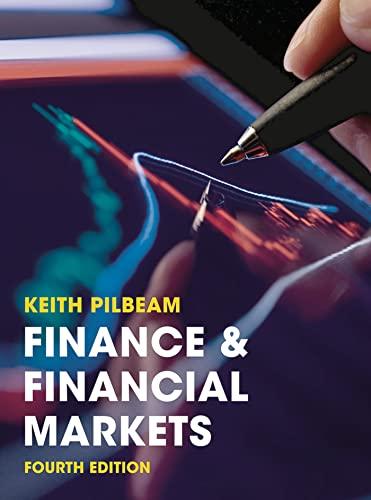Question
In late January 2020, before the spread of Covid-19 reached the EU and the United States, a subsidiary of Alpha Corporation reached an agreement with
In late January 2020, before the spread of Covid-19 reached the EU and the United States, a subsidiary of Alpha Corporation reached an agreement with a real estate representative in Stockholm to purchase a commercial property there for 136 million euros. The Alphas subsidiary, REITs Alpha or RA henceforth, is a REITs company that holds real estate commercial and residential properties worldwide, but mostly in the United States. As a part of the purchase contract, RA (=REITs Alpha) paid 15 percent of the purchase price upfront as down payment deposit. The rest was agreed to be paid upon closing which was agreed to take place after six months, i.e. end of July 2020.
In preparation for the payment of the remaining purchase amount, an analyst in the RA treasury department was put in charge of managing the payment in the best and most effective manner. The RA treasury department had already identified that about 10 percent of the total purchase amount could be financed by the retained earnings of the company. This may be somewhat unusual for standard firms, but REITs often pay a lot of dividends and have special tax treatments. Except for this amount, there is no cash available in the firm now, nor is it expected to become available in the next six months. An exception to this situation would be if the firm decides to liquidate some assets (=properties). Contrary to the dismal economic conditions due to the Pandemic, the real estate market in some parts of the US was not hit, and on the contrary was progressing above normal conditions. For instance, single family housing in the northern part of New York City (Hampton areas, for instance) was highly in demand because New Yorkers were trying to flee from NYC, particularly during the peak of the Pandemic there.
Raising debt, particularly via obtaining mortgages, is common for REITs. Therefore, RA may opt to engage in a short term loan in USD for the remaining amount that is due. Though the federal fund rate (FFR) has been pushed down close to zero (a quarter of one percent), RAs interest rate (in this case, mortgage rates for the purchase of the property) is 4.6 percent. This is a jumbo rate for five years. RA may also opt for a very short-term bank loan roughly at the same interest rate. This is notwithstanding the fact that RAs euro deposit account in Stockholm pays only 2.5 percent return per year. The mortgage or the bank loan in USD can be arranged immediately and the cash amount could be available by the end of February in the RAs treasury department account.
Unless the borrowing or lending rates are dictated, RA uses its WACC (currently = 8.00 percent) in all its computations that involve time value of money.
On top of all of the above details, RA treasury department is very concerned with variations in the exchange rate between the euro and the dollar. The firm takes this factor very seriously. Based on their past foreign acquisitions and transactions, they have learned that currency factor is a crucial variable and may make a profitable deal turn into a disaster, or vice versa. This is now particularly worrisome because though the currency rates between the dollar and the euro were roughly stable in the vicinity of $1.10 for one euro prior to the spread of Covid-19, it does not seem to be the case anymore. The currency rates have started to fluctuate and the U.S. dollar started to lose immediately after the release of the first 1.5 trillion dollars, and thereafter the second 1.3 trillion dollars, into the US. Economy. These were undertaken to help those affected by loss of business, sharp increase in unemployment, payments of unemployment benefits, and in general to help the US economy. The unintended consequences of the US treasury measures are already reflected in currency rates, and are expected to have some effects on future U. S. inflation and budget deficits.
To further cope with the above varied data and factors, the RA treasury, using consensus forecasting, has reached a decision that the projected value of the euro per USD may not reach $1.20 by the end of July. Further, they have obtained a six month forward rate on Euro to be $ 1.18 per euro. Other measures in the RA treasury department is information on the options market. After calling a few brokerage firms, RA concluded that it could buy a six-month call options contract on the remaining euro due amount at the strike price of $1.19 with a premium cost of 1.2 percent,
Q: Armed with the above information, the RA treasury analyst was then confused as to what to do. What is the best alternative for the company? You are asked to help sort out the best alternatives for this company. In particular, you need to line up briefly what alternatives to follow and what the pros and cons of each alternative may be.
Though due to the sudden disaster of the Covid-19, the RA action in managing this exposure was inadvertently postponed for about one month, I suggest you consider the information in this case to be as of the date of actual transaction, i.e., end of January, 2020.
Step by Step Solution
There are 3 Steps involved in it
Step: 1

Get Instant Access to Expert-Tailored Solutions
See step-by-step solutions with expert insights and AI powered tools for academic success
Step: 2

Step: 3

Ace Your Homework with AI
Get the answers you need in no time with our AI-driven, step-by-step assistance
Get Started


